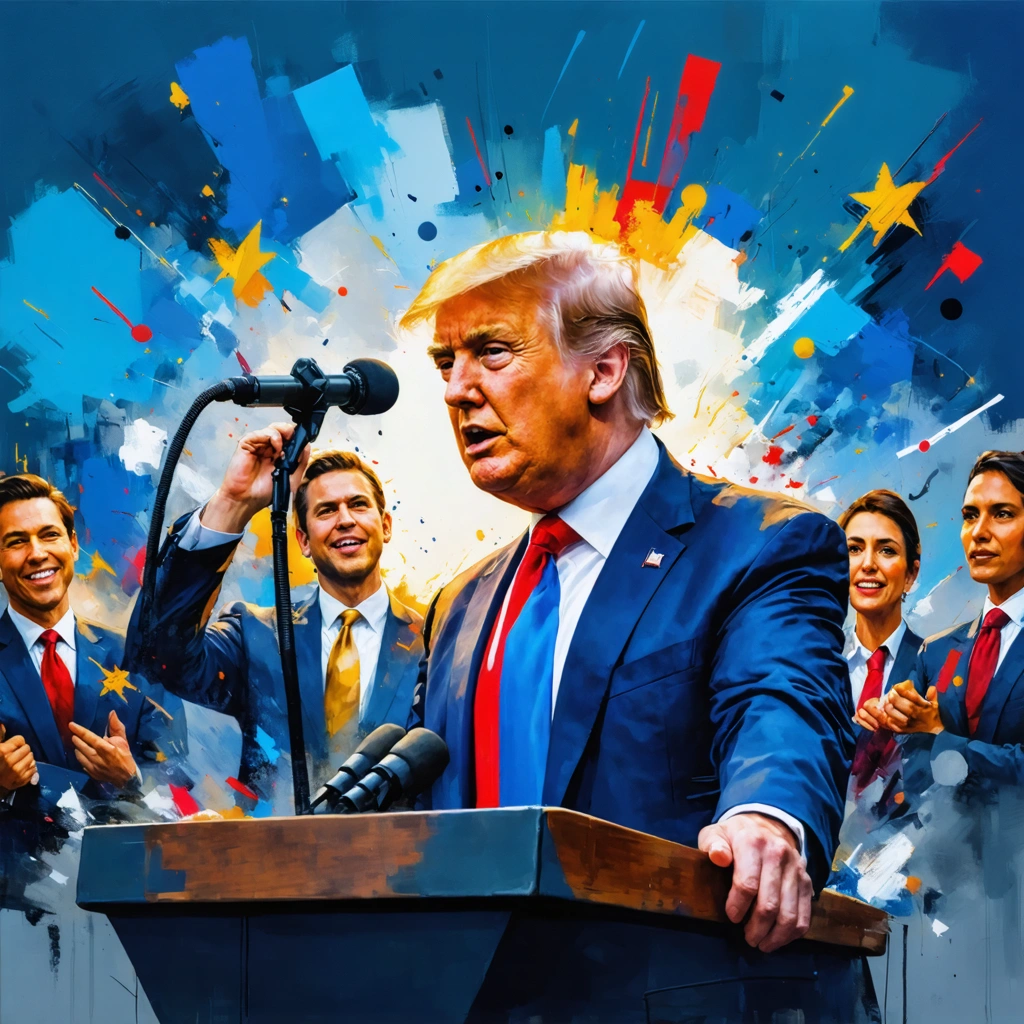
An Unexpected Political Crossroads
Special elections offer voters a unique opportunity to express their collective opinion. Voters in Florida, Texas, Arizona, and Wisconsin now decide whether the tumultuous start of Donald Trump’s term represents a change in leadership or a mandate to remain on the current course. The atmosphere remains charged with anticipation and energy. Moreover, political enthusiasts and casual onlookers alike follow these events closely as they mark a defining moment for the nation. In addition, the results might determine whether political dynamics shift drastically in upcoming months.
During these times of rapid transformation, political analysts and commentators present vibrant outlooks. They emphasize that this electoral cycle might influence future party strategies. Furthermore, local leaders continue to champion policies that resonate with the public. Consequently, debates heat up in town halls, and activists rally around their chosen candidates. Additionally, emerging trends invigorate the discourse, ensuring that every vote counts and clearly defines the political landscape going forward.
Key Factors Driving the Election Outcomes
Political observers focus on several key influencers that will drive the upcoming outcomes. First, the persistent effects of Donald Trump’s controversial policies stir up fervent support and equally passionate opposition. Second, Elon Musk’s involvement in government reform adds an unpredictable element to the debate. Third, grassroots initiatives from both parties bolster voter turnout and engagement.
Trump’s Contentious Start and Its Repercussions
The chaotic first months of Trump’s term spark widespread discussion throughout the nation. Many political analysts detail how a series of abrupt policy changes and charismatic rallies impact voters. Not only do these events energize supporters, they also prompt critical challenges from opponents. A constant stream of media coverage further fuels the narrative, thereby influencing voter sentiment. Additionally, evaluators list several factors that contribute to the public’s divided reaction:
- Frequent policy reversals that confuse the electorate
- High-profile controversies drawing national attention
- Unpredictable statements that polarize communities
- Overwhelming support from loyal constituents
In addition, regional disparities compound the situation, pushing analysts to delve deeper into the locality-specific impacts of these policies.
Musk’s Role in Government Overhaul
Elon Musk’s involvement further complicates the unfolding political puzzle. His high-profile efforts to revolutionize government operations reinforce his reputation as an audacious innovator. Many observers compare Musk’s reform agenda with historical precedents, and they watch closely as policies emerge. Politicians and citizens alike express mixed feelings about the radical proposals. For instance, a table below highlights the pros and cons discussed by political experts:
| Pros | Cons |
|---|---|
| Innovative approach to government technology | Potential for unprecedented disruption |
| Enhanced transparency in procedures | Risk of alienating traditional power structures |
| Alignment with modern economic trends | Concerns over feasibility and implementation |
Furthermore, transitional discussions among political insiders highlight Musk’s efforts as both pioneering and challenging, which creates an environment filled with anticipation and uncertainty.
Navigating Political Resurgence and Party Realignment
Candidates and strategists focus on how Democrats might reverse their fortunes. Many see potential in recent local victories, such as the surprising win in Pennsylvania, which hints at broader national implications. Politicians cast their vision about a new era where the once fragmented party finds unity. They argue that a revival of principled leadership, combined with grassroots mobilization, will define the upcoming cycle.
Voters now decide whether to embrace change or hold onto established trends. In order to list the pivotal changes the party might adopt, consider the following numbered list: 1. Increase voter outreach in suburban regions. 2. Develop clear messaging that counters populist narratives. 3. Strengthen coalition-building efforts among progressive groups. 4. Implement innovative digital campaigning strategies. Each step receives careful scrutiny from analysts who use these sequential measures as strategic frameworks for the future.
Moreover, progressive leaders articulate their vision for the party’s revival by emphasizing clear goals and actionable reform. They provide full details during rallies, interviews, and policy debates. Importantly, these discussions bridge past controversies with future opportunities in ways that resonate on both personal and collective levels. Indeed, this sequence of events appears to hold promise for reshaping the political framework and unifying a divided electorate.
The Road Ahead: An Election That Transcends the Ballot
Observers and citizens realize that these special elections transcend a mere referendum on candidates. Instead, they gauge the overall effectiveness of new political alliances and the public’s response to recent changes. As debates unfold, media outlets and opinion leaders report every development with riveting passion. Politically, the stakes remain enormous, and voters issue judgments that influence future governance.
The intricate connections between campaign strategies and regional identities emerge as voters analyze the impact of recent decisions. For instance, some campaign teams restructure their rosters to adapt to local conditions urgently. Others embrace dynamic social media strategies to reach a broader audience. In addition, the evolution from a disjointed political scene to a more coherent strategy stands out as a vital transformation. Moreover, analysts articulate the following observations:
- Regional issues often outweigh national headlines in voter decision-making.
- Dynamic online campaigning boosts engagement and voter turnout.
- Fresh alliances form in response to perceived political inaction.
In summary, transitioning from volatile beginnings to disciplined, purpose-driven campaigns appears to fuel optimism. Consequently, every voter’s decision carries substantial weight as both new ideas and longstanding challenges confront one another in this decisive election.
Implications for Future Political Strategies
Political strategist teams invest resources in understanding how these elections build momentum for future contests. They gather comprehensive data over the weekend and mobilize targeted outreach based on preliminary results. Notably, party leaders seek actionable insights on how established political order gives way to innovative reforms. In addition, the emerging results urge every stakeholder to reflect on what the nation truly desires from its leadership.
Furthermore, experts propose that the following themes will shape political debates in the coming months: 1. The sustainability of abrupt policy changes enacted at the onset of Trump’s term. 2. The integration of innovative leadership paradigms steered by influential figures such as Musk. 3. The ability of Democrats to resurface by leveraging grassroots support. These points, interwoven with immediate electoral shifts, cause many observers to predict a transformation in how future elections unfold, defining the identity of a new era in American politics.
The Final Verdict: A Divided Nation’s Bold Choice
Voters exhibit personal, regional, and ideological differences, which ultimately contribute to divergent electoral outcomes. As these special elections progress, every participant in the political process maintains a vital role in bridging conflicting visions. Moreover, electoral authorities and independent observers underscore the importance of transparency and fairness throughout every step of the process.
Not only will the results reflect how deeply these issues resonate with the public, they will also signal the strength or fragility of the prevailing political order. In brief, the coming days matter profoundly, as every precinct, every voting booth, and every citizen offers a decisive verdict. Hence, these events fuel controversies that extend well beyond the ballot box. Consequently, future political strategies must embrace adaptability, inclusiveness, and innovation to gain support across diverse communities.
In closing, transitional shifts in political attitude promise new prospects as well as significant disagreements. The narrative that unfolds continues to captivate voters, informed citizens, and global audiences alike. Indeed, the special elections offer both an insight and a forecast; they eloquently encapsulate the turmoil, ambition, and hope that define America’s modern journey toward change.




